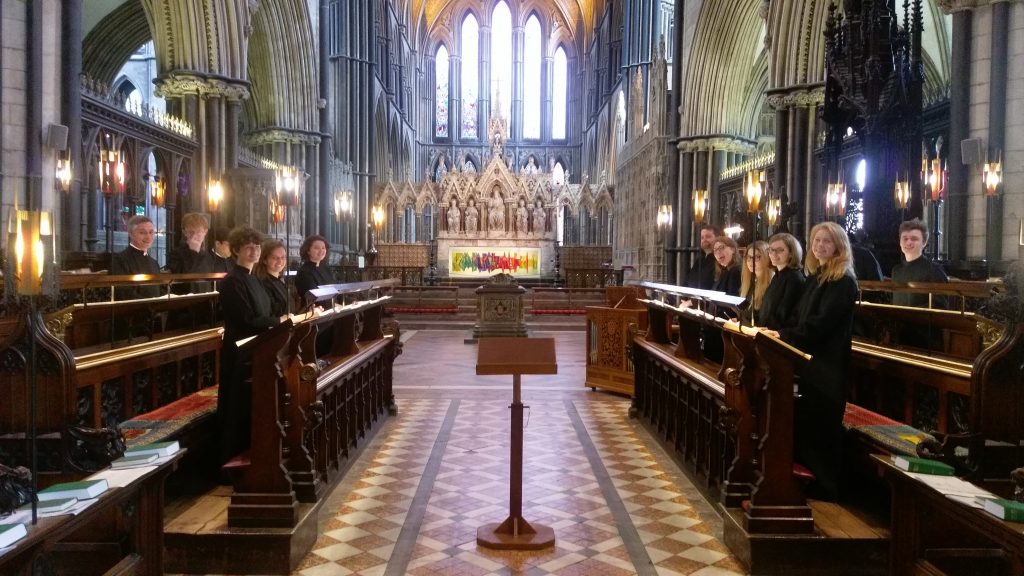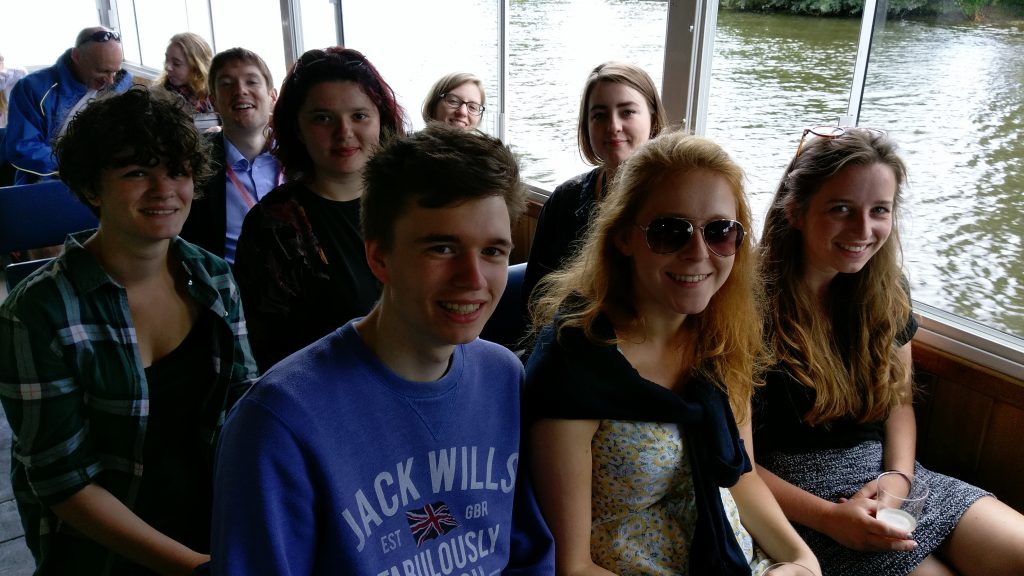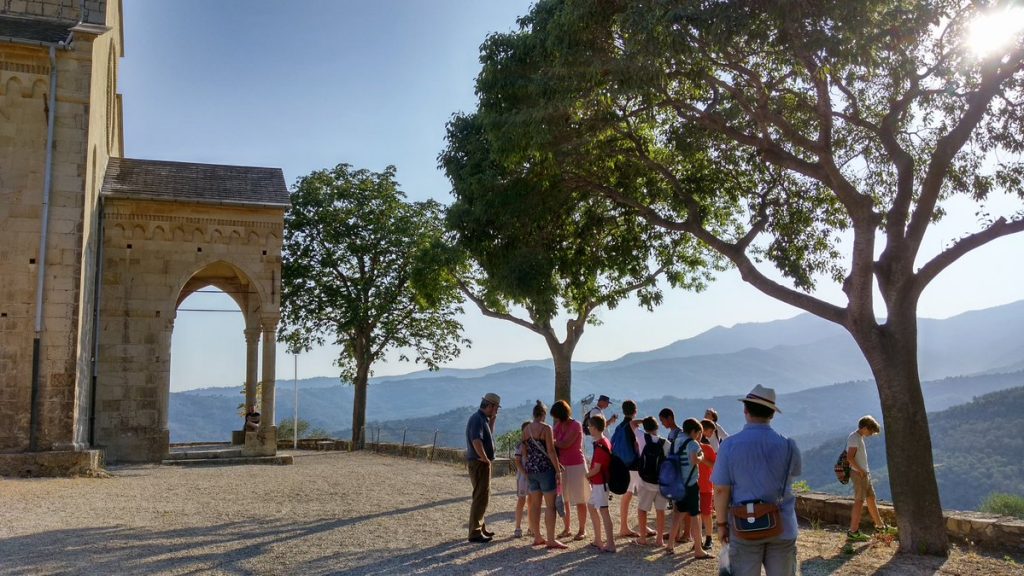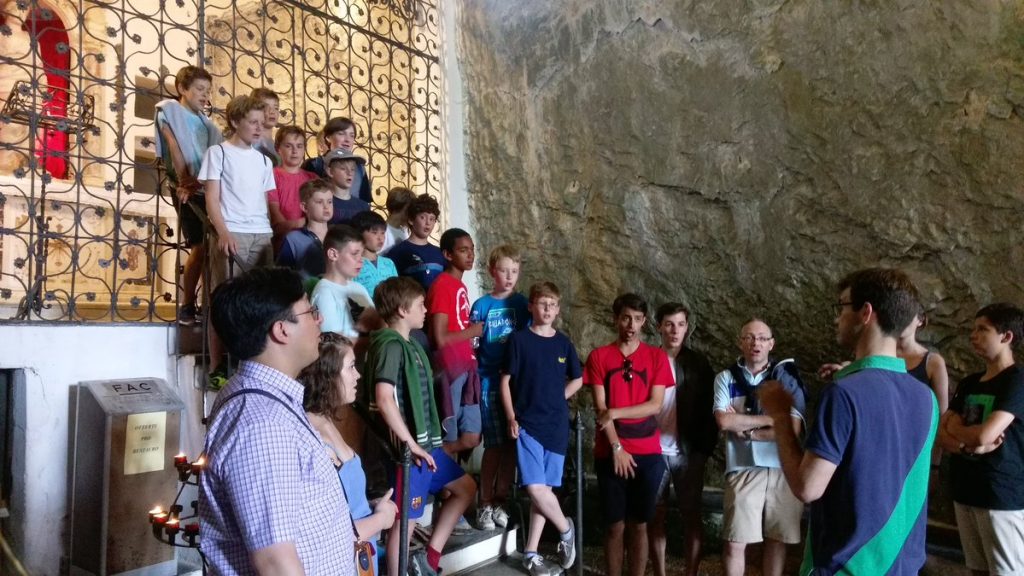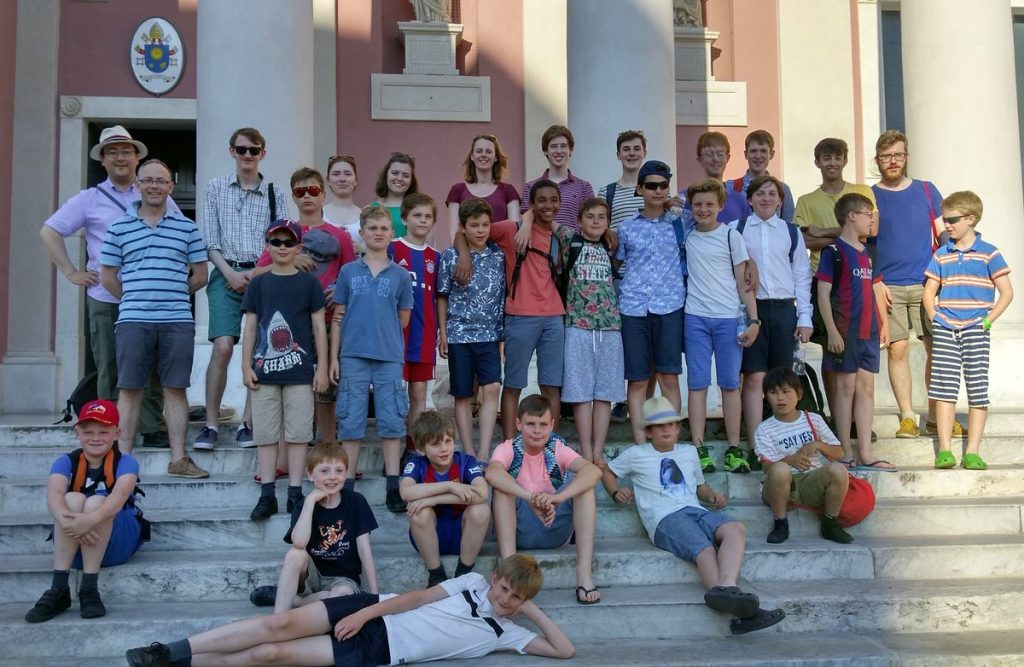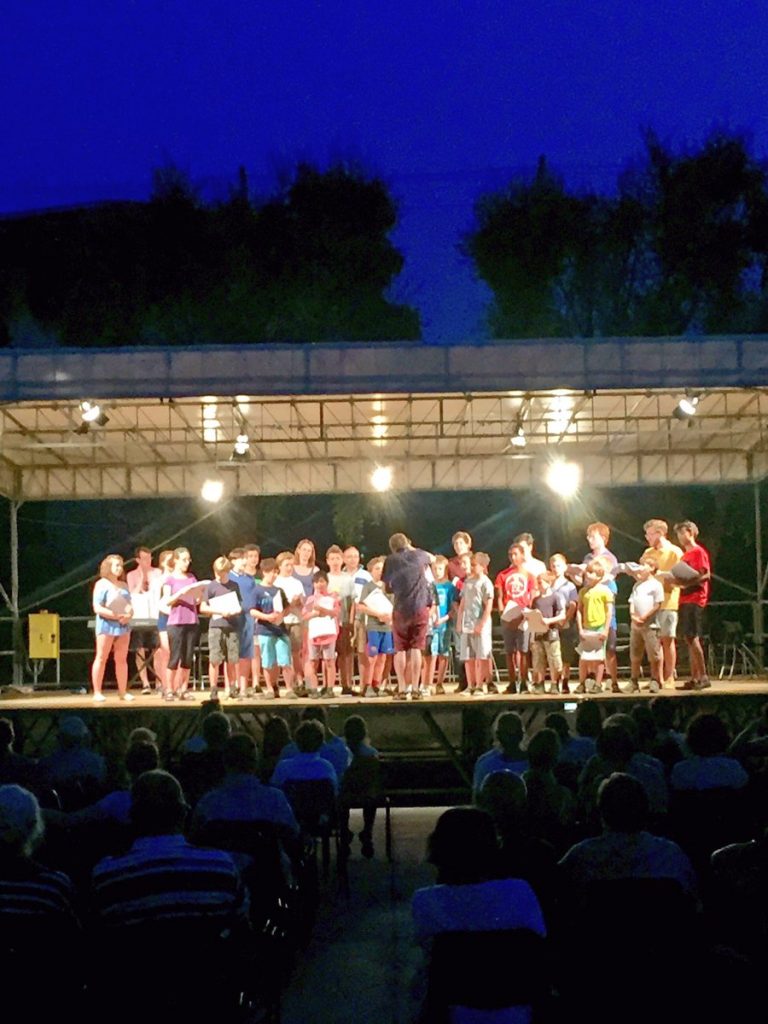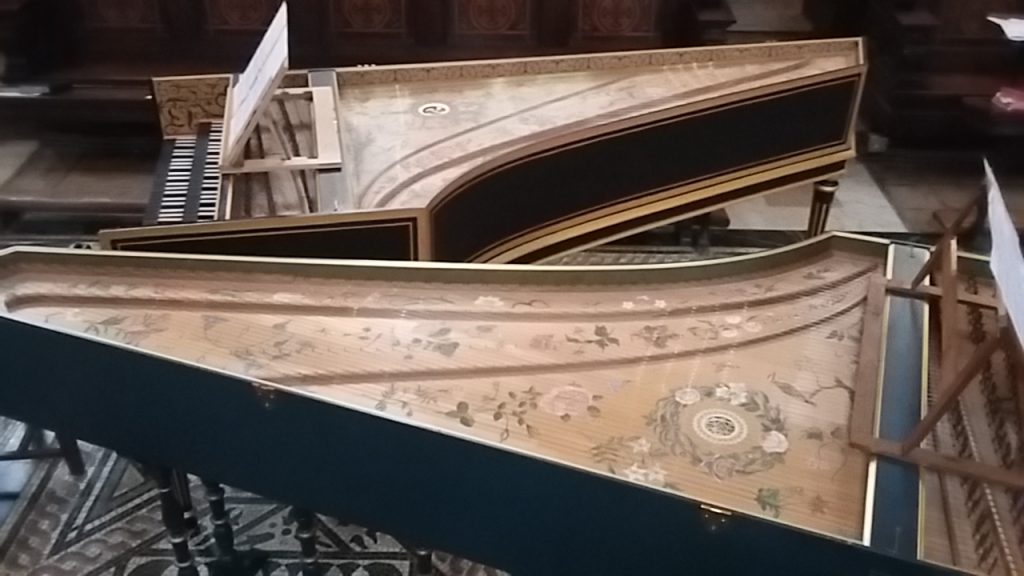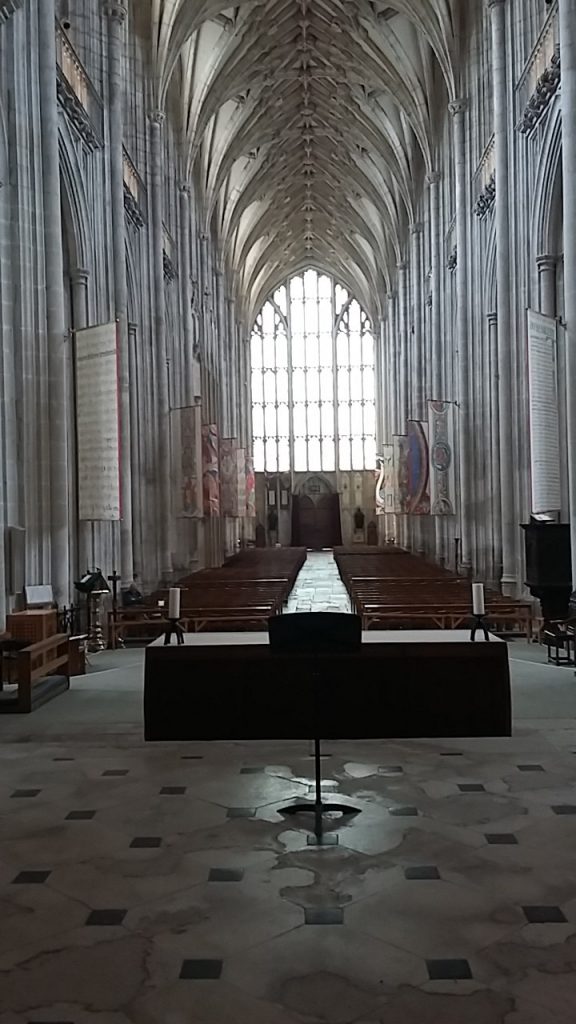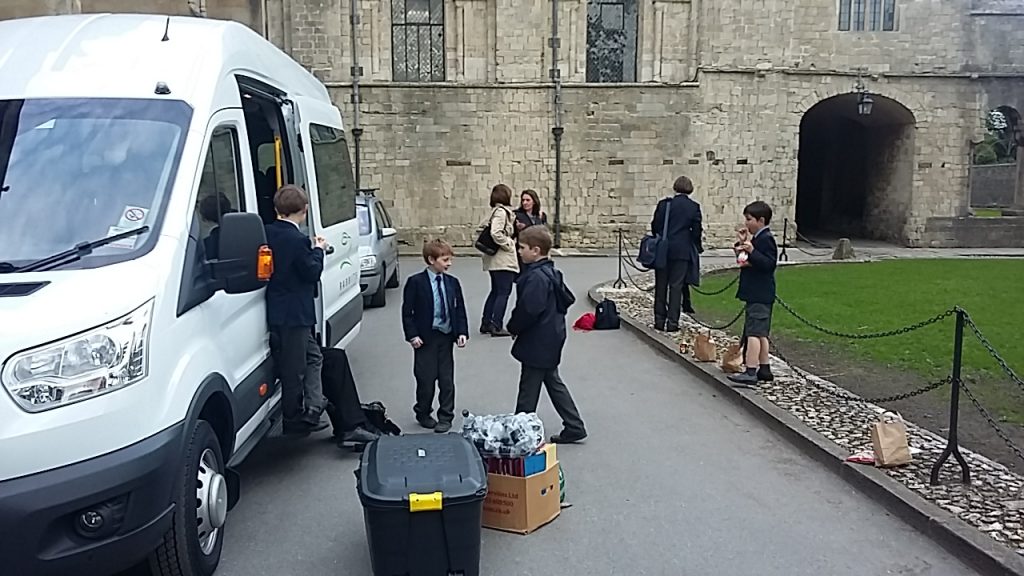Worcester College Oxford
29/5/16
Genesis 4. 1-16
Mark 3. 7-19
Doing the right thing
The 400th anniversary this year
of the death of William Shakespeare
has meant that it’s been a pretty busy time
in Stratford-upon-Avon the last few months.
We’ve found ourselves to be the focus of media attention
from around the globe,
have hosted royalty and stars of stage and screen,
all wanting to pay tribute to
Stratford’s most famous son.
There’s no evidence of
the actual dates of Shakespeare’s birth or death,
but what we do know,
are the dates of his baptism and his burial-
because they’re both recorded
in the Parish Register of Holy Trinity Church.
His baptism took place in the church on
26th April 1564
and his Burial
25th April 1616
It may seem an odd coincidence
that these dates are so close to each other.
-in fact the assumption has been made
that he was born and died on the same day,
23rd April.
But a possible explanation is provided by
an entry in the dairy of one of my predecessors,
the Vicar of Holy Trinity at the time,
suggesting that Shakespeare’s death
at the age of 54
was caused by a fever
brought about by drinking too much
whilst out celebrating his birthday with his friends.
Let this be a warning to us all!
400 years later, the popularity of Shakespeare’s work
continues to grow.
Over 250,000 people come every year
to visit his grave in Holy Trinity Church
and his plays continue to find
new audiences across the world.
One reason for this is surely
that Shakespeare’s drama
engages with the most fundamental
of human emotions and experiences:
love, hate, revenge, jealously,
mistakes, regret,
humour, joy, sorrow, victory, defeat.
Whether it’s a comedy, tragedy or history,
all of human life seems to be there, laid bare.
Our first lesson this evening,
from the book of Genesis,
contains some pretty raw human emotion
that wouldn’t be out of place
in a Shakespearean tragedy.
Between two brothers,
Cain and Abel, the sons of Adam and Eve,
there is at first jealousy,
then anger,
deception, murder
and finally a curse.
It’s not clear at first why,
but Cain gets things disastrously wrong.
Whilst the offering of his younger brother
is accepted by God,
Cain’s “fruit of the ground” is not received.
Cain’s failure to do the right thing
leads to his life unravelling:
he becomes homeless, without means
and estranged from his family.
The story of our own lives
might not be quite so dramatic,
but doing the right thing
-or rather a desire to avoid making a mess of things-
must surely be important to most of us.
But how can we know
what we are to do with our lives,
what decisions to take,
especially then they will affect our future?
What does it look like
for us to be doing the right thing in our lives?
A palliative care nurse
who counsels the dying in their last days
recently recorded the most common regrets
people have expressed at the end of their lives.
She observed the phenomenal clarity of vision
that people gain in these moments,
and put her observations into a book called
The Top Five Regrets of the Dying.
One of the regrets was: I wish that I had let myself be happier.
Apparently, fear of change causes
people to pretend to others,
and to themselves, that they’re content,
when deep within,
they long to laugh properly
and have silliness in their life again.
But the most common regret she records is this:
I wish I’d had the courage to live a life
true to myself, not the life others expected of me.
How, then might we achieve some clarity
about how we should live our lives,
before it’s too late to do anything about it?
One answer lies in our second lesson.
Jesus has an important decision to make
which will profoundly affect the future.
He needs to get this right,
because he’s to choose his closest companions,
those who will continue his mission after he’s gone.
But before he calls his disciples
he goes up a mountain.
Mountains are important in the Bible,
they have a strong symbolic value.
Think of Moses on mount Sinai
and the giving of the ten commandments,
The sermon on the mount.
The Transfiguration, and so the list goes on.
In cultures where God was believed to dwell in the heavens, that it is the sky,
going up a mountain signifies being closer to God;
seeing things as God sees them,
finding a more expansive perspective
than our usual human experience allows.
One of the good things about living in Stratford
is that the Cotswold hills are not far away.
I love to sand on the western edge of the hills
looking out across the expanse
of the plain of the River Severn
towards the distant Malvern hills the other side.
The small details of our lives
especially the things that weigh us down,
can seem less of a burden when we look out
from a great height.
With our perspective opened up
we can perhaps more readily perceive
what is the right thing to do.
Many people encounter
as sense of being nearer to God
in these high places,
where the veil between heaven and earth seems thin.
In these moments,
we might recall the words of tonight’s psalm:
“mine age is even as nothing in respect of thee”.
I also find it helpful
to recall some words of another psalm:
“Be still, and know that I am God”
When we need to make a decision
about the right thing to do,
when we seek to know more clearly
who we are meant to be,
then we need to find a mountain moment.
And if you don’t happen to have a mountain
close at hand
then try using those words
to focus your mind and heart on God.
Be still, and know that I am God
You can use this simple phrase as a spiritual exercise
which helps us to discover the truth
about God and about ourselves,
by gradually shortening the phrase.
Be still, and know that I am God
Be still, and know that I am
Be still, and know
Be still
Be.
Our fundamental calling,
is simply to be.
To be, not in isolation,
but to be
in perfect relationship with God and with others.
We see this in the calling of the disciples
in our second lesson.
It’s another three chapters before Jesus actually sends the apostles out to do anything.
Until then they remain with him,
discovering what it means to be fully alive
and in relationship with God.
So it turns out that doing the right thing
begins with being not doing.
Even in those times when we’re hard pressed
with tasks to be done,
-perhaps exams to sit
or a looming deadline,
we still need moments when we can just be,
time to recall that
who we are
and what we must do
begin with God.
The classic film Chariots of Fire
with that famous scene of the athletes
running along a beach
to the music of Vangelis,
tells the story of the Scottish athlete Eric Liddel,
who competed in the 1924 olympic games.
Liddel, devout Scottish Presbyterian
declares
“if I win I win for God”.
Later on he says:
“God made me for a purpose.
When I run I feel his pleasure”
Ultimately our fulfilment is to be found when
doing our own thing
is the same as doing Gods thing,
when God’s pleasure becomes our pleasure.
When Cain offered his work to God, it was rejected. Perhaps he had failed to understand
what God wanted of him.
The land on which his produce grew
had previously been cursed by God,
following the trespass of his parents
in the garden of Eden.
Perhaps Cain might have sensed
that his offering was not right
if he had given himself some space
to be still and focus on God.
When we’re faced with decisions
about who we are to be and what we are to do,
there is no better place to start
than to recognise
the presence of the God who loves us as we are.
Be still, and know that I am God
By developing habits of prayer,
creating those mountain moments
which can be anywhere, any time,
we can discover
who God created us to be,
and what God created us for.
We find our true fulfilment
when being true to myself
becomes the same thing
as being true to God’s purposes for me.
I don’t pretend for a moment
that this is easy or straightforward.
When I was an undergraduate
I felt sure I was meant to be an engineer.
Eventually I realised that this was not the path
I was meant to take,
but it took me a while to work it out!
We nudge forward trying to make sense of
the unpredictable drama that is our lives.
The tragedies, joys and sorrows we experience
can often feel more like stumbling in the mist
rather than enjoying the view
from the top of the mountain.
The Christian spiritual writer Christina Rees,
reflecting on the story of her own faith, puts it like this:
“There has been no sense of arrival,
just the sense of knowing myself
to be on the right path.
I have no idea where the path will continue to lead,
only the confidence in the One who is leading.”
Whether or not our lives reflect
the drama of a Shakespearian play,
if we wish to have the courage
to live a life true to who we are meant to be,
rather than the life others expect of us,
then our story must begin and end with God’s story,
with the one who created us,
his Son who redeems us
and the Spirit who sustains us:
Be still, and know that I am God.
___________________________________________


